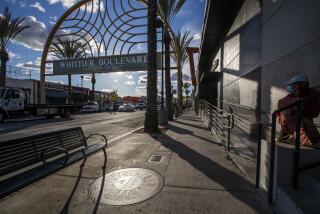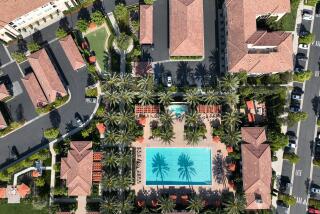Calabasas Portrait
Incorporated in 1991, Calabasas is a city with growing pains. Elected officials and residents often find themselves grappling with quality-of-life issues for the first time: how much development to allow, how to generate tax revenue and how to avoid becoming another San Fernando Valley. The city’s name comes from the Spanish word for pumpkins or gourds, calabazas, according to some. Others contend it was taken from the name of a Chumash village. Despite the fact that no pumpkins are grown in Calabasas, the city holds an annual pumpkin festival that has grown in popularity and now attracts thousands.
History
Calabasas’ original one-room school, built in 1890, enrolled only a few students. The Las Virgenes Union Elementary District was formed in 1947, which became the Las Virgenes Unified School District in 1962. Major development of Calabasas was made possible after 1958 when the Las Virgenes Municipal Water District was formed. In the late 1960s, the Calabasas Park area was developed as an all-electric community. The city now has many amenities including the Calabasas Tennis & Swim Center and a new library on Calabasas Road. After several delays, a $10-million renovation of the Valley Circle Boulevard and Mulholland Drive interchange is almost complete.
Area Highlights
* The Leonis Adobe and Plummer House: Reopened last May after suffering extensive damage from the 1994 Northridge earthquake, the Leonis Adobe on Calabasas Road was the home of settler Miguel Leonis and his wife Espiritu Chijulla. The 1844 adobe brick structure now serves as a museum and is on the same site is the restored Plummer House, moved in 1983 from Plummer Park in Hollywood.
* Old Town Calabasas: Modern shoppers can feel as if they’ve stepped back in time in Old Town Calabasas, a collection of western-style shops and restaurants on Calabasas Road. Some may even spot Calabasas resident Clayton Moore, sans the Lone Ranger mask he made famous. A farmers market and one-acre park are new attractions to Old Town, and improvements are planned to ease traffic and parking congestion.
Current issues
* Calabasas Park Centre: The proposed Calabasas Park Centre has generated much debate among residents and city officials. Two years before Calabasas incorporated, Ahmanson Commercial Development won county approval to build the 1.5-million-square-foot retail and office complex at Parkway Calabasas and Calabasas Road. Feeling the effects of a weak office market, Ahmanson later applied to the now-incorporated city to increase the retail space from 50,000 to 200,000 square feet. After the city council approved the project in December 1994, opponents gathered enough signatures to force a referendum. Unresolved legal questions remain and the issue has yet to be placed on a ballot.
* Calabasas Promenade: Tentative plans for a development at Las Virgenes and Agoura roads call for a Home Depot, Hughes market, school and church. The project is yet to be decided by the city council.
COMMUNITY PROFILE
(Includes Topanga)
Population: 10,883
Median age: 40
Number of households: 3,914
Persons per household: 2.8
Owner-occupied housing units: 83%
Population below poverty level: 3.6%
Population over 18 with bachelor’s degree or higher: 48%
INCOME
Average household income is more than double the Los Angeles city average.
Calabasas: $102,667
Citywide average: $45,701
Northeast Valley: $44,444
Southeast Valley: $48,182
Northwest Valley: $56,427
ETHNICITY
White: 89%
Asian: 5%
Latino: 4%
African-American: 1%
Other: 1%
Sources: Las Virgenes Unified School District, 1990 U.S. Census, staff reports
Researched by STEPHANIE STASSEL/Los Angeles Times
*
“It’s like living in a resort. In addition to local parks and playgrounds, we have state parks near us and a bus that goes to the beach every summer...we have low crime and beautiful scenery “--Karyn Foley, Calabasas City Council member
More to Read
Sign up for The Wild
We’ll help you find the best places to hike, bike and run, as well as the perfect silent spots for meditation and yoga.
You may occasionally receive promotional content from the Los Angeles Times.






